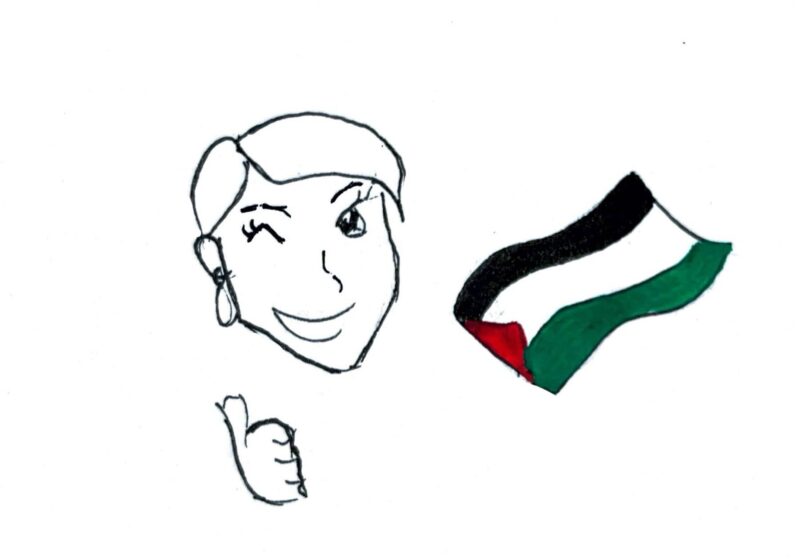A shootout. A gold medal over Canada. A piece of sweet, sweet revenge. And a 20-year old named Maddie Rooney, who users of Wikipedia named our “actual” Secretary of Defense.
At last, U.S. women’s hockey players are gold medalists. While the gold medal game against Team Canada was arguably the most memorable moment of Pyeongchang 2018, there was something the sports world missed or didn’t have time to sit down and process amid these winter games.
On Feb. 10, a day after the games commenced, the United States Soccer Federation held its election, voting in its next president. Kathy Carter, a former president of Soccer United Marketing, a partner of the Major League Soccer and the federation, emerged as a clear favorite. But after three rounds of voting, it was former federation vice president and Goldman Sachs investment banker Carlos Cordeiro who will take a crack at the federation’s laundry list of conundrums moving forward.
Personally, I backed Carter. Her experience in marketing would have been an invaluable asset to alter the optics of soccer in America, and she openly prioritizes fighting to eliminate the gender pay gap. But in addition to the lofty goals of the federation, farming soccer talent might be the issue worthy of the most consideration.
Growing up, I never found soccer that compelling. Signing up for AYSO as a 6 year old didn’t leave me attached; the running back and forth didn’t compliment my childhood asthma nicely.
But while I might not love the game unconditionally, the sport has a significance in the world.
First of all, some of the most prolific female athletes played soccer: Mia Hamm, Abby Wambach and Marta. (And if you don’t know who Marta Vieira da Silva is, you should.) Second, when we discuss sports that unite people across borders and state lines, soccer (or in some countries, football) is that sport.
So why is American soccer generally pushed to the side? While most women’s teams are used to it, why did the sports Twitterverse implode when the U.S. Men’s National Team failed to qualify for the 2018 World Cup?
This week I spoke to senior Laura Cowie-Haskell, who used to play for Women’s Soccer and now participates on an intramural team, on which she is indeed the only female. We discussed her thoughts on the federation election and why soccer remains a sport for the rich in America.
“I’ve gotten the chance to travel to a lot of developed and underdeveloped countries, and wherever you are, you can see these ad-hoc games. Whether they have a real soccer ball or a ball of rags, they’re playing. In the U.S. you don’t get the chance to see that because everything is so privatized,” she said.
What it comes down to is how accessible the sport is for young people, and the pay-to-play system in the United States deters young athletes from the sport. In the U.S., basketball rules urban areas. Young people simply pick up a ball in any concrete jungle and play.
“Kids don’t have the opportunity in cities especially to go pick up a soccer ball and play on fields because the fields don’t belong to them,” Cowie-Haskell said. “It’s kind of sad to me because this is supposed to be something for everybody, and really talented kids aren’t getting the opportunity to be successful because everything is so privatized.”
When discussing the election results, the senior was skeptical of both of the front runners, Carter and Cordeiro, but she understood the selection, praising Cordeiro for his knowledge of the system.
We both were skeptical of Hope Solo, who ran for the position as well. Coupled with her lack of knowledge regarding how large scale companies function, her temper and composure drew red flags.
But Solo’s frustration with the outcome of the election is understandable. She and other nominees, such as former players Eric Wynalda, Kyle Martino, and Paul Caligiuri, believe that handing the federation over to someone who was a crucial component of the former ineffective system won’t get it over the hump.
If these former players want the establishment to make a change, they shouldn’t have relied upon some shiny executive position. If they want Cordeiro and the federation to listen, they must mobilize and spearhead projects which begin to correct some of U.S. soccer’s deepest predicaments.
Last year, U.S. women’s hockey players mobilized. Last year, they threatened to go on strike. Last year, they wanted funding for youth programs. This year, they brought home the gold.
“Everybody Talks” is a radio show on WRUR’s the Sting that highlights women’s involvement in sports and the social issues that surround athletics. You can listen to it every Friday from 1–2 p.m. on thesting.wrur.org





